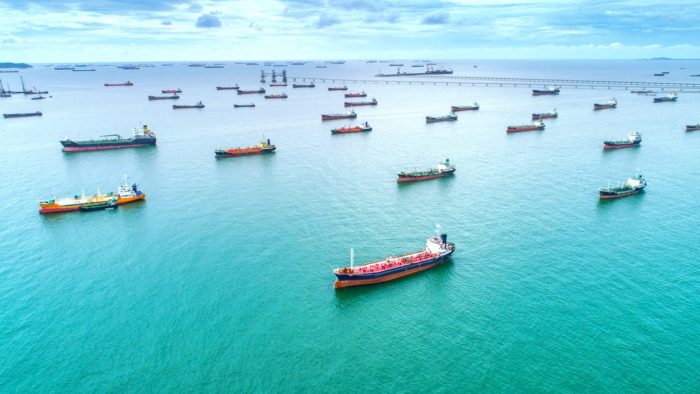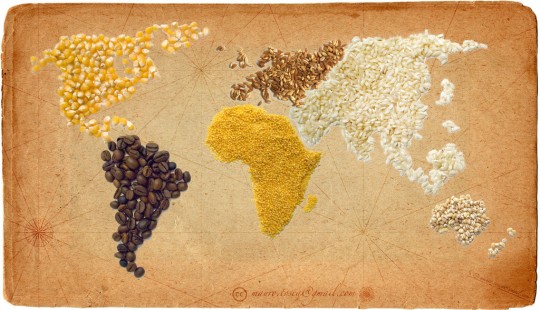

Logistics and Logistic Management is a fascinating, multi-faceted and vital part of our world. The average person may not know what a critical role logistics plays in both Supply Chain Management (Business) and Relief Supply Chain Management (Humanitarian, Medical, Disasters, and Emergencies). From resource-rich Africa or Asia, to end users/consumers a world away, logistics is key in every step of providing us with access to normal, everyday things we take for granted. For example, multi-billion dollar businesses such as Coffee, Chocolate (Cocoa), Tea, Sugar, Vanilla, Cotton, Rubber (Latex), Metal, Fuel and Coltan (a metallic ore used in mobile phones), to name a few, all rely heavily on logistics to get their goods to market.
Logistics is a demanding master with many deadlines. A logistic manager may be inspired to redefine the meaning of the word “challenge” on a weekly basis. On the plus side, working in or managing logistics reveals a world full of interesting, even amazing, people, products, places, and situations.
The definition, complexities and globalization of logistics is well documented. However, in simple terms, logistics is the planning, organizing and transporting of people and all types of cargo from where they are to where they need to be in the most secure, cost effective, timeliest, and efficient manner.
The World(s) of Logistics
The Military world, Business world, Corporate world, Energy, Medical, Humanitarian, Commodity and Trading worlds could not function without logistics. These activities are at the core of what they do, what they can achieve, their successes, failures and the ever-important bottom line.
The crucial role logistics plays can be illustrated by the farmer in any village trying to get his produce to market, or the same farmer travelling to the health clinic for vital medicine for his sick child. Logistics are essential for global organizations dealing with supply and demand or volatile price fluctuations with the commodities they trade. Especially humanitarian organizations struggling to meet the critical and time-sensitive demands of the latest natural or manmade disaster rely on logistics.
Logistics is a key component in:
But logistics is also a main concern when:
Business Logistics vs. Humanitarian Logistics: are they really that different?
Business logistics incorporates all sectors of industry and is generally profit and volume driven. Supply and demand, research, forward and strategic planning form the basis for when, where, how, with whom, and at what price companies do business.
Humanitarian logistics is financed by various governments, private donors, and fund-raising (which can include in-kind/material contributions). This type of logistics is generally driven by unplanned emergency situations of varying magnitudes and involves crisis management on a large scale, often in more than one place at the same time. Logistics managers in this field do not always have the luxury of having adequate pre-planned resources available in the right place at the right time. However, it is still important to plan for and organize resources for long term humanitarian assistance in many strife-torn locations such as the Central Republic of Africa, Congo, Sudan or Syria.
On the surface, Business and Humanitarian logistics may seem like they are worlds apart. However, the two actually have much in common and can learn from each other. Both follow a similar and difficult path in relation to sustainable development, investment, social and environmental responsibility, managing budgets, accountability, sustaining successes, reviewing and changing strategies or processes, diversifying, managing commercial relationships, and handling increased or unexpected demand. One relevant and ironic fact that stands out is that the majority of the natural resources that we consume, use, trade, and ship around the globe come from many of the same countries which are at the mercy of natural and man-made disasters and therefore most in need of humanitarian help.
Both Business and Humanitarian efforts need employees who have integrity, are culturally sensitive, professional, experienced, engaged, process orientated and motivated. They need suppliers who are reliable and fulfill quality and quantity requirements. They also need systems that link all key global personnel to each other and to critical data such as location and availability of stocks, finances, and resources.
Business and Humanitarian logistics efforts intersect in other ways. For example, when demand is high and availability of required equipment or transport is limited, both parties must compete for the same resources. Both also struggle with other challenges, including changes in governments, changes in rules/regulations or procedures, breakdown with production or distribution, poor infrastructure, fragmented power supply and price fluctuations. They also often operate in difficult/unstable environments, have to meet tight deadlines, and deal with delays and congestion, as well as with strikes at ports, with transporters, or with customs.
Both parties know the necessity and benefits of strategically-located warehouses with good facilities, good security and maximum capacity, which also have easy access to necessary equipment and transport. This is particularly essential for storage of “buffer stocks” used for fulfilling urgent requirements or shortfalls. Applying "lessons learned", assessing risk and vulnerability, being prepared for emergencies, and optimizing and utilizing all available resources are all important both in the Business and Humanitarian world, as both strive to manage all aspects of demand and supply.
Logistics incorporates and utilizes all manner of equipment, transport, packaging, and resources. Its activities play a central role in rapid response for all humanitarian situations, and in the business world, for dealing with tight and varying deadlines. The structure and disciplines of logistics, "just-in-time" systems, and especially supply chain management, has enhanced the ability of all relevant parties to fulfill ever-changing and unexpected requirements.
Good coordination, inclusion, cooperation, and smart combination of all available resources, experience and knowhow are all essential for achieving the best possible results. An example of achieving these results involves the military, who have great experience in combining resources (army, navy and air force) in times of conflict, as well as with assisting in humanitarian and disaster situations.
Working in Logistics
Working in this field encourages thinking outside of the box, as well as active demonstration and utilization of many skills (e.g. planning, prioritizing, people, negotiation, communication and organizational) while navigating various obstacles. It requires dedication and motivation, can crisscross many different time zones, and is often not a 9-5 job.
In logistics, one will work with various modes of transport (air, truck, rail, barge, ship, even bicycle) and liaise with people from all walks of life, including farmers, producers, shippers, sellers, buyers, traders, warehouse keepers, transporters, freight forwarders, port personnel, customs, governmental organizations, shipping and inspection agencies. It is critical to cultivate a good professional, cooperative working relationship with all parties, and base that relationship on transparency, mutual respect and understanding.
Excellence in logistics is dependent on a combination of factors, the most important of which is human resources. All teams should include local staff who will have the knowledge, skills, ability and contacts to get the job done most efficiently. This is key for smooth operations. Essential elements also include, but are not limited to, strategic planning, flexibility, simplicity, innovative problem solving, costing, monitoring service providers, managing updates and being extremely detail-oriented. It is essential also to keep up-to-date and be aware of economic, political and cultural issues which impact logistics, as well as the relevant teams in the countries with which (and in which) one works. Being well-informed makes it possible to take proactive, constructive steps to deal with issues rather than being reactive.
Joint ventures or smart consolidation of some aspects such as transport, freight, documentation and storage can reduce costs and admin. It is important to work with professional, financially secure freight forwarding, transport and shipping companies who are experts in all aspects of moving cargo, have the required equipment, and good contacts with relevant authorities. It is critical that they follow all instructions closely and correctly, respect deadlines and provide regular complete cargo tracking updates. They can also be a great source of intelligence/information regarding business acquisitions, mergers, partnerships or "divorces", which may affect or limit transport/shipping possibilities, and regarding new or proposed changes related to costs, procedures, or regulations which will impact logistics.
A people- and process-oriented business
Logistics management encompasses production, packaging, sampling, loading, transport, delivery, shipping, freight negotiations, bank negotiation, security, documentation, and storage/warehousing. In essence, it is the initiating, planning, implementation, efficient and cost effective movement of people and goods from places of origin to final places of delivery in line with terms, conditions, instructions and requirements of organizations, customers, corporations or markets.
The proper coordination of all logistic processes will ensure logistic success which can be measured by cost savings and customer satisfaction. For the business world, this may translate into repeat orders or increased market share. For the humanitarian world, it translates into lives saved and hardships averted or limited.
From A-Z, logistics is above all a people- and process-oriented business. So the next time you drink a coffee, eat some chocolate, fill up at the gas station, sleep between nice cotton sheets, or use your laptop or mobile phone, remember that logistics played a big part in making it possible.
For more information, see Additional Logistics Information - By Caroline Tully.
Great article on Logistics!
Logistics solutions are what move the world, every hour, everyday!
Thank you Caroline for these extremely valuable insights!
Fantastic article, clearly written by someone who is hugely knowledgeable in this area and who stays abreast of change even in volatile markets. Seriously refreshing and in my opinion, the world of logistics could do with more experts of this level who clearly understand the end-to-end process, cause and effect of the decisions made and other contributing factors that can have such a huge impact on results.